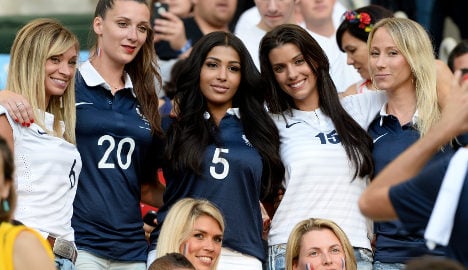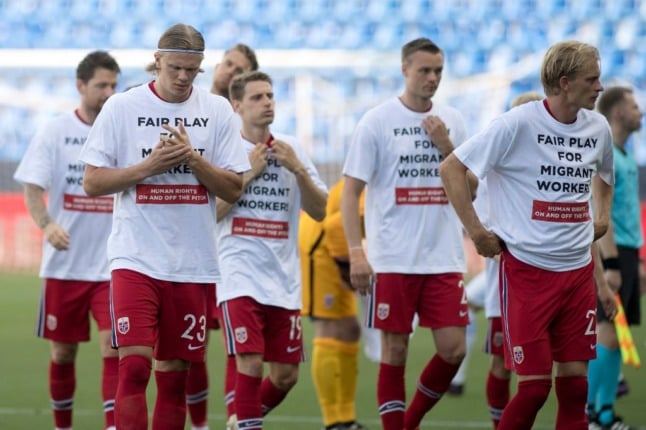The WAGs française made a conspicious presence inside the famous Maracana stadium in Rio di Janeiro on Wednesday night as their loved ones eased through to the last 16 of the World Cup with a 0-0 dreaw against Ecuador.
With the action on the pitch not living up to the excitement of France's 5-2 drubbing of Switzerland last Friday, the attention of photographers inside the stadium soon turned to the stands.

The players' partners had been flown out to Brazil on the eve of the match and were soon at the centre of a media storm when reports emerged that they had demanded to be upgraded to a more a five star luxury hotel from the four star accomodationthey had been given.
Those claims were quickly denied however by the French Football Federation.

The wives and girlfriends seemed to be getting as much media attention as the players themselves. It is not clear how long they will remain in Brazil for, bu that will probably depend on how long France can stay in the competition. They face what appears to be a fairly straightforward last 16 tie against Nigeria on Monday.
Deschamps said Les Bleus would have "to fight" to get to the next round.
"Nigeria are a strong fast team who have great qualities and it is going to be a really difficult match and we will have to fight."
Deschamps admitted that his decision to make sweeping changes prevented Les Bleus from performing at their best in a 0-0 World Cup draw with Ecuador.
"When there are changes it does have an impact on the cohesion of the team," he said after the draw.
Deschamps made six changes to the team that hammered Switzerland 5-2 last Friday, including bringing in Morgan Schneiderlin for his first international start in place of the banned Yohan Cabaye.
The draw against an Ecuador side, that played most of the second half with 10 men after Antonio Valencia was sent off, sealed France's qualification, but their performance was nothing like the spectacular showing against the Swiss.
"I could put out the same team every time, but then it would be pointless having the other players here," added Deschamps.
"I have confidence in all 23 players and we needed to find the right balance between preserving some who have played a lot of games and making sure that others who we may require later on are in good condition.
"It takes away some of the fluidity and we were less dangerous in the first half. After the red card we had a bit more space and some good moves but were not as clinical in front of goal as usual.
"Maybe this result will calm some people down. The World Cup is the highest level and we can't win every game by three goals."



 Please whitelist us to continue reading.
Please whitelist us to continue reading.
Member comments